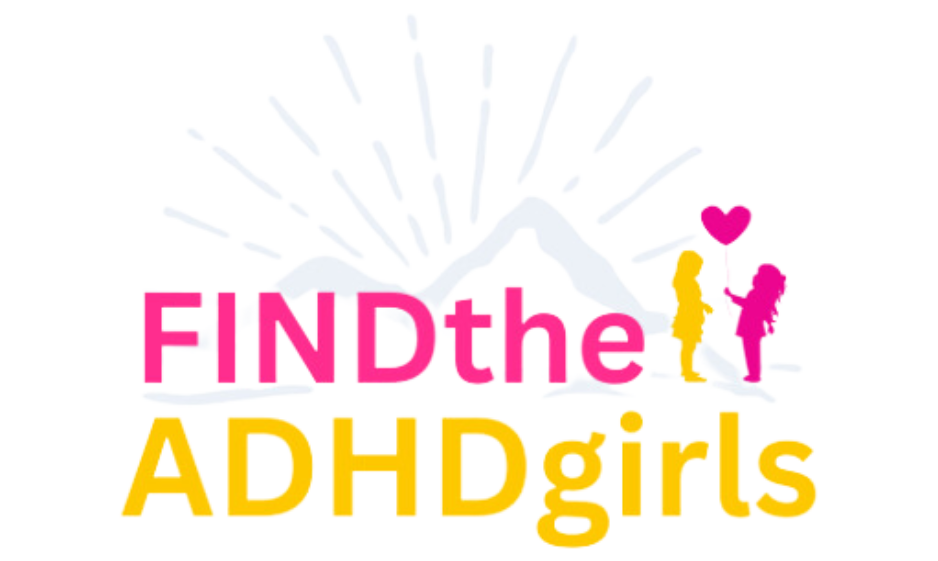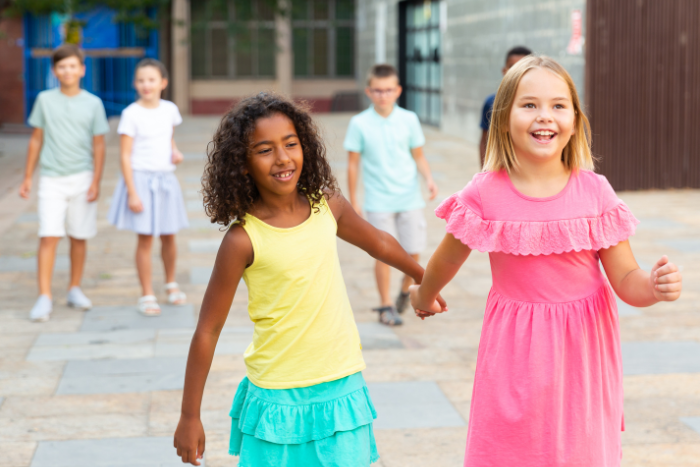Helping Your ADHD Daughter Make Friends can feel like an uphill battle when social situations often leave her confused, left out, or misunderstood. Your ADHD daughter may come across as rude or clueless, even when she’s genuinely trying to fit in. Her ADHD affects how she reads the room, picks up on cues, and responds in the moment. She’s often doing her best and may not even realize she’s missing important social signals. While other kids seem to “just get it,” she feels confused or left out, without knowing why.
But her challenges aren’t character flaws; they’re symptoms of a brain that works differently. Regardless, your daughter can learn social skills with the right support. And with a diagnosis and proper treatment, developing and practicing those skills becomes much easier.
Good Manners Aren’t the Same as Social Skills
Your daughter might say “please” and “thank you” like a pro. She might know to put her napkin in her lap and say, “Excuse me,” if she bumps into someone. But those are manners, not social skills; they don’t automatically translate to friendships.
What really helps your daughter build friendships are the invisible social skills, like knowing how to take turns in conversation, handling frustration when things don’t go her way, or deciding whether someone’s being playful or mean. Situations like these don’t have a straightforward or obvious answer, and they can be hard for ADHD kids to manage.
So yes, you’ve likely taught her important social tools; but if she’s still struggling to connect with other kids, it’s time to look closer for hidden gaps in her social skills.
Lower Your Expectations (Then Lower Them a Bit More)
Girls with ADHD often lag 30% behind their peers in emotional and social maturity. That means your 8-year-old may function more like a 5- or 6-year-old when making and keeping friends. She’ll catch up eventually. But pushing her to meet age-level expectations now is too high a bar. She’ll only get frustrated. So, meet her where she is and start building from there.
And be prepared for inconsistency. It’s not a sign that anything is wrong, it’s just a part of ADHD.
How to Help Your ADHD Daughter Build Social Skills
Make the Invisible Visible
Kids with ADHD miss subtle social cues and struggle to connect cause and effect. They may not realize that interrupting someone is rude or that they’re making someone uncomfortable by standing too close. So, walk through it with her. Name what you see.
Example:
- When watching TV: “She seemed upset when her friend didn’t call her back. Why do you think that hurt her feelings?”
- Out in public: “That was kind of him to hold the umbrella. I bet they appreciated staying dry!”
As you talk about what words mean and how they make people feel, point out body language, too. Eye contact. Physical space. Facial expressions. Encourage her to ask questions. You’re helping her learn about social nuance by making the invisible visible.
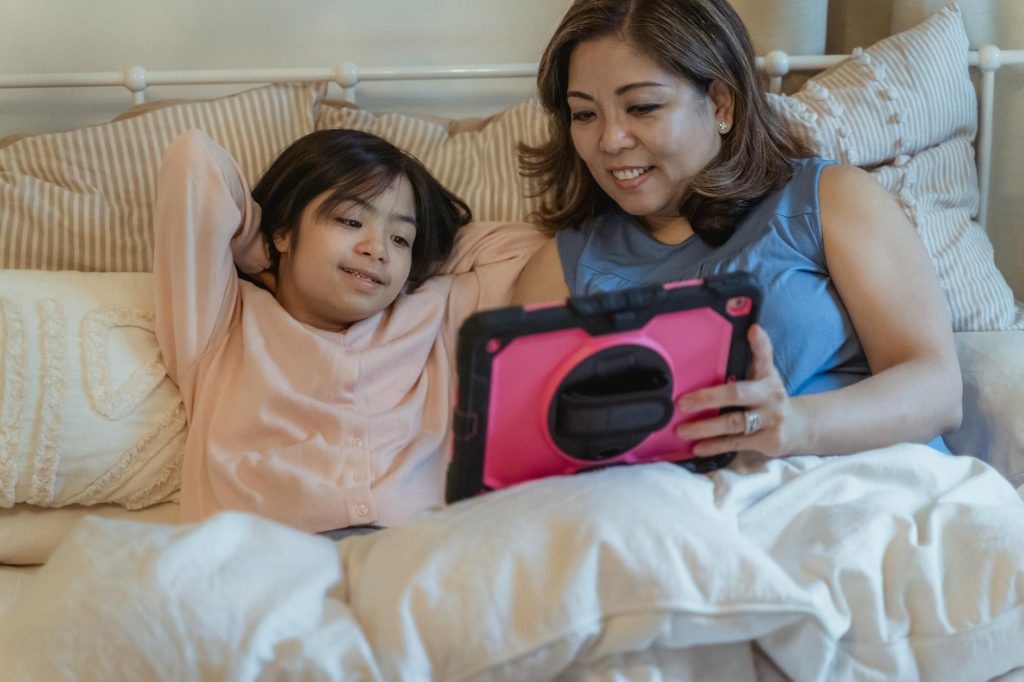
Model Emotional Regulation
Your daughter learns how to respond to emotions by watching you. So, let your daughter see you take responsibility for your own missteps. If you lose your cool, that’s okay. No one is perfect. Take a moment (or three) and apologize. You can even ask for a do-over. Your daughter is watching and learning from how you behave.
Here’s what one ADHD expert has to say:
“Emotional regulation is a dance, not a discipline, and repair after rupture is powerful. Saying to your child, “I didn’t like how I acted and I want to do better, models accountability and self-compassion.”
~~Dana Crews, certified educator and ADHD coach
Roleplay and Rehearse Communication and Kindness
Helping Your ADHD Daughter Make Friends starts with practicing at home. For ADHD kids, starting conversations and knowing what to say can be tough. Not to mention, impulsivity can get in the way of kindness. For example, your daughter may say something thoughtless or rude before she can catch herself. So, start practicing at home—it’s the perfect low-pressure environment to safely learn social skills.
Quick tips to practice communication and kindness with your daughter
Roleplay “what if” games and walk through tricky scenarios (you can also use stuffed animals or sock puppets):
- What if someone says, “You can’t play with us”?
- What if someone makes a mean comment?
- How can you join a group that’s already playing?
Give her go-to conversation starters:
- “Hi! I’m _____, what’s your name?”
- “Do you want to see something cool?”
- “That looks fun, can I try?”
Help her build an internal filter
- A quick pause before she speaks
- Thought-check, would this make someone feel good or bad?
- If it’s hurtful, could she reframe it or not say it?
Teach rewind phrases if something comes out too harshly
- “Oops, I’m sorry. Let me say that in a kinder way.”
- “That came out wrong, I meant to say…”
- Can we have a do-over?
Kind Visual Aids
- A do-over card to hold up at home when she wants to try again
- Brainstorm and create a kind words chart together
- What not to say versus what she could say instead
These suggestions may feel awkward or too simplistic. But remember, ADHD means this stuff doesn’t come naturally to your daughter. Think of it like a springboard. These sessions boost her confidence and prepare her for real-world social situations.
Support Friendships with Younger Children
One effective step in Helping Your ADHD Daughter Make Friends is to encourage friendships with younger children especially if she struggles to relate to her classmates. This often feels more comfortable for her because these children are a better match for where she is developmentally. And because of her age, they may look up to her, which boosts her confidence.
Be sure to frame it positively. Instead of, “you’re not ready to play with kids your own age,” you could say something like, “It’s good to play with lots of kids, and younger kids are fun and easy to hang out with.”
These friendships are a great way to meet her where she is and start building. However, they should be used as scaffolding or part of a larger social strategy because your daughter still needs guidance and social practice with kids her own age.
Low-Stress Playdates
Start introducing low-risk social situations, such as simple one-on-one playdates. They should be short; an hour or two is enough. Choose the other kid carefully, maybe a younger child or a patient, kind classmate. This increases the chances that the meeting will be fun for both children.
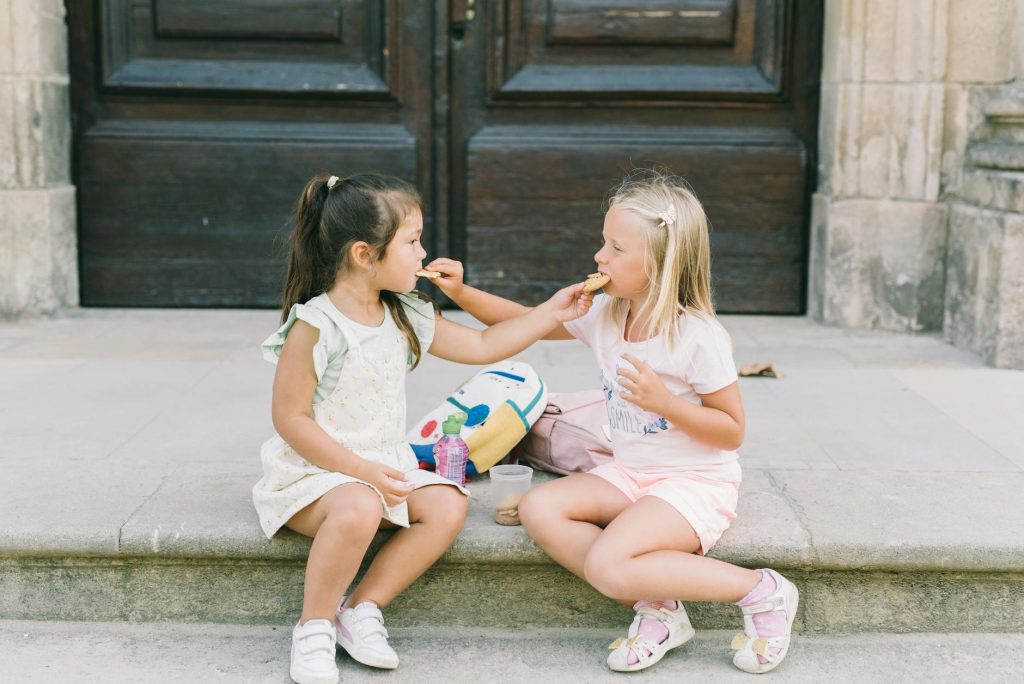
Structured activities like a board game such as Hoot Owl Hoot or a LEGO project are good options for reducing uncertainty during playdates. You can also allow your daughter to help plan the activity to increase her ownership of the plan. Be close enough to intervene if things go sideways, but don’t hover. You want your daughter to feel secure but also independent, so stay in the background. Finally, try to end the date on a high note. Maybe a special treat for lunch like pizza.
After Playdate Debriefs Help Skills Stick
After the playdate, debriefing is crucial. Discuss what went well and what needs improving with your daughter. If you can, do it immediately. Since ADHD kids have trouble with working memory and connecting behaviors to outcomes, the sooner you can talk to her, the better.
Ask open-ended questions like what went well and what was hard. Allow your daughter time to answer fully. If she gets stuck, help her think through it with more open-ended questions. For example, if she says the game wasn’t fun, ask her what about it wasn’t fun? Maybe it was because she didn’t win or got bored. Get to the bottom of it with her. Ask her what she could try next time.
Most importantly, highlight what she did right and be specific. “You did a great job today” is nice for your daughter to hear, but it isn’t sticky. However, detailed praise like “You did a great job waiting your turn during the game” helps reinforce the skills she’s building. This is especially powerful when it’s something she’s struggled with in the past. Let her know you see improvements and you’re proud of her.
Build Self-Awareness (Without Shame)
ADHD makes your daughter’s brain unique and different, not bad. But if she doesn’t understand they’re just differences, she may think something’s wrong with her.
And that’s where you come in. Talk about ADHD openly and honestly with your daughter. She already knows there’s something different, and you can help her understand that she experiences the world in a unique way, not a wrong one. You can frame ADHD as a different type of “operating manual,” but one that doesn’t define or limit her. Your supportive perspective removes shame and boosts her self-awareness and self-esteem.
“It’s a beautiful moment when a child realizes something’s different about their brain, but it’s not what’s wrong with me—it’s I knew it! I knew something was different.”
~~ Liz Angoff, ADHD author and educational psychologist
Teach Her What Makes a Friend
Helping Your ADHD Daughter Make Friends isn’t just about social skills it’s also about teaching her what healthy relationships feel like. When your daughter understands her brain’s strengths and challenges, she has a good foundation to form stronger, more connected relationships. But that’s only part of it. ADHD girls are often so eager to be included that they may tolerate poor treatment just to be part of a group. So, help your daughter understand the difference between attention and affection.
Teach her that real friends make you feel safe and seen. Help her understand the give and take of authentic relationships. In other words, it’s not always 50/50, but it should be a two-way street between them. Explain that if someone makes her feel small, ashamed, or scared—that’s not okay, and that person isn’t a friend.
These conversations fill in vital pieces of the social puzzle to help your daughter tune into how she feels about someone. She can look beyond whether that person is “popular” or “fun” and make decisions based on her internal compass. Developing this skill will make navigating complex social circles easier.
Help Your Daughter Build Her Social Circle
Your daughter doesn’t need to be popular; she needs a connection to others. Even one close friend can make all the difference in her life. That friendship lowers her risk of bullying and improves her resilience, and you can help her make that friend.
Opportunities for Your Daughter to Make Friends
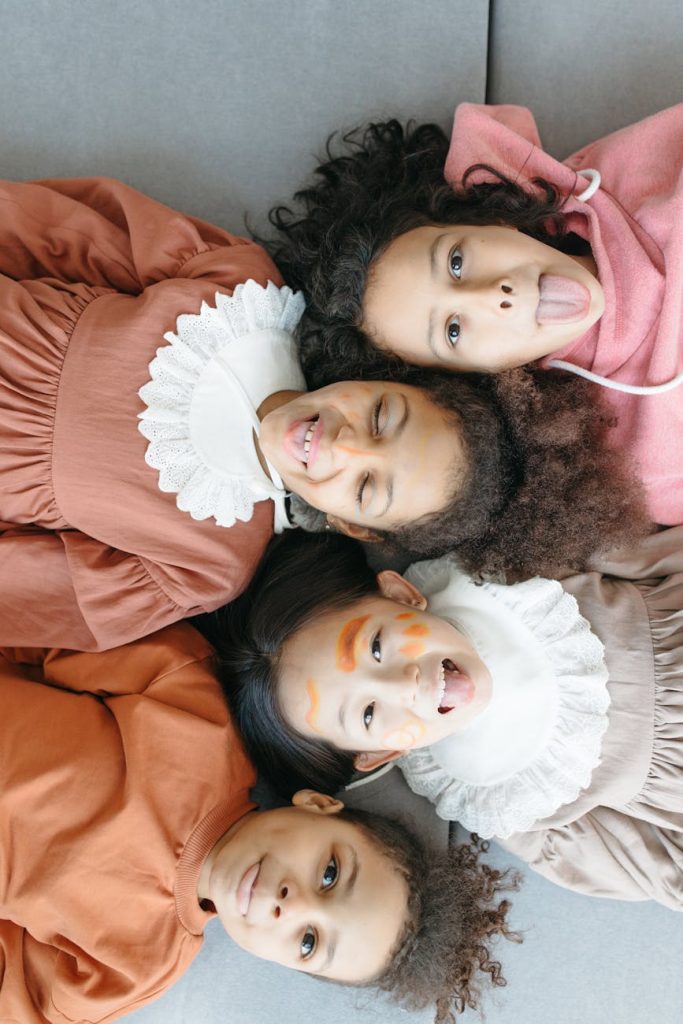
- Help your daughter look for kind kids instead of cool ones. If she struggles to relate to children her own age, schedule a playdate with a younger child.
- She can join small interest-based groups or clubs. ADHD minds are interest-driven. If your daughter is already excited about an activity, the social aspect won’t seem as daunting.
- You can check out extracurriculars and team sports with your daughter, too. Some kids with ADHD thrive with those activities, and some kids don’t, but it’s worth investigating. You can always meet with the coach beforehand to see if it seems like the right fit.
- Encourage bonds with other neurodivergent kids, cousins, and neighbors. Schedule playdates with them. The more practice she gets, the more comfortable she becomes.
- Welcome relationships with safe adults, like a teacher or mentor. Again, this is about connection and building resilience. Supportive adults are like a port in the storm.
When Social Struggles Happen (and They Will)
Even with practice, social struggles will happen. Your daughter might get left out of a party, fight with a friend, or have a playdate go sideways, and her reaction is huge. That’s not her being dramatic. That’s her protecting herself, and she needs your support in those moments.
- Name it. “Being left out really hurts.”
- Validate her feelings. “It’s okay to feel upset.”
- Reassure her that it’s okay to make mistakes.
- Let her know you’re on her team and you love her.
Progress not Perfection
Friendship shouldn’t be a secret club your daughter doesn’t have the password to. And with your support, it won’t be. She can build skills, learn unspoken rules, and find people who cherish her as she is. It might be messy. And it might feel like a cha-cha, two steps forward, one step back—but it’s worth it. Because one genuine connection can change everything.
Love this? Sign up for the FINDtheADHDgirls newsletter to get it delivered right to your inbox. Or check out our Repository for more information about ADHD girls.
About the Author

Alex Alcon
Alex Alcon, RN, Freelance nurse content and copywriter, owner of RN2Pen LLC.

Cynthia Hammer, MSW
Cynthia Hammer, MSW, is an ADHD advocate helping girls get timely diagnoses. She's the founder of FINDtheADHDgirls, Executive Director of Inattentive ADHD Coalition, and author of Living with Inattentive ADHD.
